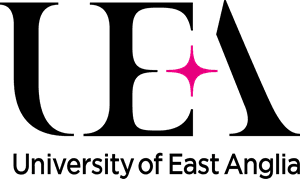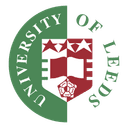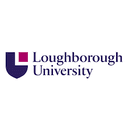PhD Studentship: Gut Microbiome Variation in Wild Birds: Developmental Consequences for Host Traits and Fitness
University of East Anglia - School of Biological Sciences
| Qualification Type: | PhD |
| Location: | Norwich |
| Funding for: | UK Students, EU Students, International Students |
| Funding amount: | £20,780 p.a. for 2025/26 |
| Hours: | Full Time, Part Time |
| Placed On: | 10th October 2025 |
| Closes: | 7th January 2026 |
| Reference: | DAVIDSON_UEA_ARIES26 |
Primary Supervisor: Dr Gabrielle Davidson
BACKGROUND
Wildlife gut microbiomes are critical for host biology and health, yet are highly variable and environmentally responsive, especially in birds. There’s now a pressing need to understand how these symbionts affect development and fitness. This project tackles a key evolutionary ecology question: when are gut microbes are important for wildlife?
This project builds on recent findings that wild great tits (Parus major) nestlings with higher Lactobacillaceae abundances are more likely to gain weight and fledge. In a subsequent experimental manipulation, supplementation with host-derived L. kimchicus affected nestling weight, suggesting a causal, functional interaction between microbial strains and host physiology.
Why, then, do some individuals lack seemingly beneficial strains? Building on these novel empirical findings and existing theory, you will investigate how developmental and ecological factors shape colonisation, and how the gut microbiome effects suites of host traits.
RESEARCH METHODOLOGY
You will study wild populations of great tits and blue tits (Cyanistes caeruleus) in East Anglia, focusing on the nestling and juvenile stages, when microbiome colonisation begins. You will collect faecal samples from birds with natural and experimentally altered gut microbiomes, longitudinally monitor growth, behaviour and cognition (via automated feeders), and analyse microbiome composition using 16S rRNA and whole-genome sequencing. Statistical modelling will test for links between microbes and host development and fitness.
PROJECT OBJECTIVES
Primary focus areas, with potential to tailor according to your interests.
- Assess how nesting environment and microbial supplementation influence microbiome colonisation.
- Determine microbiome effects on developmental plasticity of behavioural, cognitive and biological phenotypes.
- Explore whether early-life gut microbiomes predict first-year fitness.
TRAINING
You will join a supportive, interdisciplinary research group, including a postdoc, DTP students, and technicians. Training will include fieldwork, bird handling, ringing, lab techniques in molecular biology, microbiome sequencing, bioinformatics, and statistical modelling in R. You will also gain experience in critical thinking, scientific writing, and presenting your research. Transferable skills for academic and non-academic careers will be embedded throughout.
PERSON SPECIFICATION
Reliable and enthusiastic team member willing to contribute to shared data collection in a collaborative environment. Prior experience in fieldwork, ornithology, molecular techniques, or data analysis is desirable.
ENTRY REQUIREMENTS
At least UK equivalence Bachelors (Honours) 2:1. English Language requirement (Faculty of Science equivalent: IELTS 6.5 overall, 6 in each category).
Acceptable first degree: Biology or related field.
MODE OF STUDY: Full or part time
START DATE: 1 October 2026
Additional Funding Information
ARIES studentships are subject to UKRI terms and conditions. Successful candidates who meet UKRI’s eligibility criteria will be awarded a fully-funded studentship, which covers fees, maintenance stipend (£20,780 p.a. for 2025/26) and a research training and support grant (RTSG). A limited number of studentships are available for international applicants, with the difference between 'home' and 'international' fees being waived by the registering university. Please note, however, that ARIES funding does not cover additional costs associated with relocation to, and living in, the UK, such as visa costs or the health surcharge.
Whoops! This job is not yet sponsored…
Or, view more options below
View full job details
See the complete job description, requirements, and application process
Express interest in this position
Let University of East Anglia know you're interested in PhD Studentship: Gut Microbiome Variation in Wild Birds: Developmental Consequences for Host Traits and Fitness
Get similar job alerts
Receive notifications when similar positions become available












